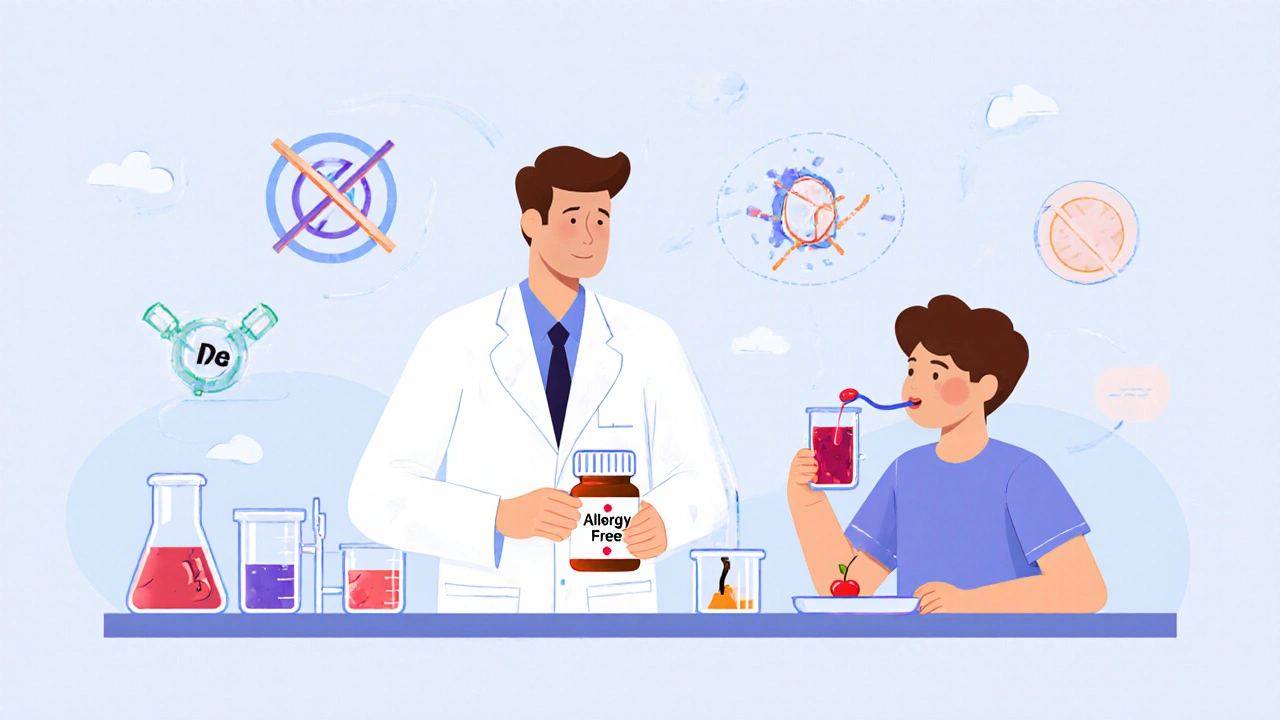Compounded Medications: What They Are, When They're Used, and What to Watch For
When a standard drug won’t work for you—because you’re allergic to a dye, need a different dose, or can’t swallow pills—compounded medications, custom-made drugs prepared by pharmacists to meet specific patient needs. Also known as custom formulations, they’re not mass-produced like regular prescriptions. Instead, they’re mixed from scratch using raw ingredients, often to fix problems that FDA-approved drugs can’t solve. This isn’t science fiction. It’s everyday pharmacy work, especially for kids who need flavor-free liquid versions of antibiotics, seniors who need to avoid lactose, or patients with rare conditions that no drug company bothers to make.
There are two main types: non-sterile compounding, mixing oral liquids, creams, or capsules without needing a sterile environment, and sterile compounding, preparing injections, IV bags, or eye drops in clean rooms to avoid contamination. Non-sterile is common for things like hormone creams, pain gels, or discontinued meds. Sterile is used in hospitals or for cancer treatments. But here’s the catch: while FDA-approved drugs go through strict testing, compounded ones don’t. That means quality can vary. A 2023 study found over 15% of compounding pharmacies had at least one serious violation—like using unapproved ingredients or poor storage. It’s not about trust. It’s about knowing who’s making your medicine.
You’ll find compounded meds in posts about generic drug alternatives when the brand-name version is too expensive or unavailable. You’ll see them in discussions about hormone replacement therapy, custom estrogen or testosterone blends made without fillers that trigger reactions, or when people need to avoid gluten, dyes, or alcohol in their pills. They’re also behind the scenes in NTI-specific substitution laws, where even tiny changes in drug formulation can cause seizures or bleeding. If you’re on warfarin or levothyroxine, a compounded version might be your only safe option—if it’s made right.
But here’s what no one tells you: if your doctor prescribes a compounded drug, ask if it’s from a licensed pharmacy that follows USP standards. Check if it’s made in-house or outsourced. Ask for a batch number and expiration date. Don’t assume it’s safer just because it’s "custom." Some of the worst drug contamination outbreaks came from compounding labs. And while they can save lives, they’re not magic. They’re medicine—just made differently.
Below, you’ll find real cases where compounded medications made the difference—whether it was helping someone with severe allergies get their daily dose, replacing a discontinued drug, or finding a way to take medicine without vomiting. Some posts show how they’re made. Others warn you about the risks. All of them are based on real patient experiences and pharmacy data. You’re not just reading about options—you’re learning how to ask the right questions before you pick up that bottle.
Compounded medications are custom-formulated drugs for patients who can't use standard prescriptions due to allergies, dosage needs, or swallowing issues. Learn when they're necessary, how to find safe pharmacies, and the risks involved.
Nov, 21 2025

